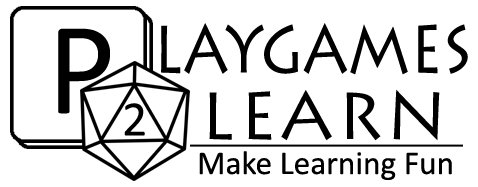Chess Attack has its origins way back in the depths of time. Growing up, we often played tabletop games, including both Chess and Dungeons & Dragons. At one point, we were playing quite a bit of Chess, but for D&D me it was a bit boring compared to more “realistic” combat systems. A pawn automatically taking a knight? A knight never falling to mishap when attacking a pawn? Surely a roll of the dice should figure in there somewhere!
Then, a large scale ship battle system in one rulebook introduced the idea of flipping over a token to show that a ship was damaged – it could still fight, but less effectively. And there—the idea that eventually became Chess Attack was born.
Years later, when our daughter became old enough, we introduced her to Chess. She came to know how the pieces moved and the importance of strategy. However, being young, she was naturally challenged to put a longer-term plan into effect, and she struggled with the idea that her pieces could just be taken. She also knew it was hard for her to win and any mistakes were deadly. Of course, we guided her in thinking ahead and the “are you sure?” prompt helped too. At some point, I remembered the game I had roughed together when I was young.
I brought out the old (and for some reason, very tiny) pieces to demonstrate the idea of attack and defense values, rolling the dice for both sides, and comparing the result to decide the winner. She was instantly attracted to the game play, and to the idea that you could have custom tokens for your own army. So of course, we each had to immediately make our own set of cardboard tokens—the “wounded” sides got particular attention. 🙂
One aspect of Chess Attack that grabbed her was the chance for the battle to go either way, or even end in a draw.
- Mistakes are not so final. Pieces could be wounded and live to fight another round, albeit with weaker stats.
- The more experienced player might not so easily prevail. Luck could turn the dice against them, and an attack they should have won could end in a draw, a weakened position, or even an outright loss for their side.
Another valuable part of the game play is the repeated adding up of the support values from the other pieces. Having the supporting pieces affect the attack and defense values of the two pieces actually engaged in the current combat helps keep careful planning top-of-mind.
- What do you need to have an overwhelming advantage? Or to counter one you see building against you?
- For attack, a two-point advantage is pretty much the minimum required or you’re taking a big chance.
- For defense, if you can make it boil down to just roll against roll, then you’ve planned pretty well.
Practicing this thinking quickly improved her attacks and defenses in both Chess Attack and Chess itself. However, if a game was taking too long or didn’t have enough action, she would definitely place the fate of her pieces squarely in the hands of the RNG gods, and just roll the dice.
Last year, we finally put Chess Attack up on our website as a free print-and-play with proper-looking pieces—making it the oldest of any of our educational tabletop board games. Now we’ve also added out first custom tile set, the Animal Army! And with our blank template, you can make your own special set of fighters.
Chess Attack has all the educational benefits of Chess, such as problem solving, memory, planning & contemplation, etc. (got to branch those dendrites!), plus a bit of basic math thrown in as a bonus (eg: adding and comparing numbers in your head) as you try to make sure the dice rolls will favour your side as much as possible.
Hope you’ll check it out – and when you do, let us know how it went! 🙂
Join our Community of Parents and Educators!
At Silverpath Publishing / PlayGames2Learn.com, we believe in #LearningThroughPlay to help #MakeLearningFun. We publish fiction and educational tabletop games for children and young adults.
To receive announcements about new releases and promotional discounts as well as invitations to participate as beta-readers or play-testers, subscribe to our mailing list.

